- Home
- George R. R. Martin
Suicide Kings wc-20
Suicide Kings wc-20 Read online
Suicide Kings
( Wild Cards - 20 )
George R.R Martin
George Martin
Suicide Kings
1
Thursday,
November 26
Thanksgiving Day
Guit District
The Sudd, Sudan
The Caliphate of Arabia
From way up here it was all so clear.
Over here on the left were the Simba Brigades, the armed forces of the People’s Paradise of Africa. They had foolishly deployed in an area, a couple square miles in extent, which were among the very few in the southern Sudanese papyrus swamp called the Sudd. They had armor, glittering dully in the sullen southern Sudan morning sun, dug in by bulldozers and concealed in clumps of brush and stands of trees: mostly Indian Vijayanta tanks and British-made Nigerian Mark IIIs, which were almost the same thing. They were enhanced unevenly by upgrades provided by the PPA’s Chinese patrons.
Dug in alongside them were armored cars, light tanks, and several thousand mechanized infantry. They were long-term veterans of the war that had liberated and unified Central Africa, leavened by Nigerians trained to a fare-thee-well. Advised by Indian army officers, they had made a stab at catching their enemies debarking from the evanescent and nameless tributary or strand of the Nile onto ground where they could maneuver. Now with small arms and rockets they fought a desperate battle against superior numbers of Caliphate tanks and men.
Tank main guns cracked like thunder. Rockets sprang away, drawing lines of cottony white smoke behind them that settled and dissipated slowly in air so humid and heavy the flying man almost felt he could walk on it. Vehicles blossomed in sudden fire, the ripples of their fatal detonations propagating outward, the shock waves punching at the bare pale skin of the man’s face. On columns of black smoke and red fire the smell of fuel combusting mounted upward, momentarily overcoming the hot reek of vegetation rotting in the endless swamps, the acrid stink of spent propellant giving way to the deceptive barbecue aroma of burning human flesh.
Up here was too high to hear the screams. Not that they carried far under the colossal head-crushing din of modern war.
The Caliphate forces rolled forward from barges guarded by Russian-made armored riverboats flying green banners that stirred like the shit-brown surface of the river in a sluggish breeze. Their fighting vehicles were mostly Russian made. Flat T-72s and a few more modern T-90s led the wave. Following came Echelons of BMP-2 and -3 personnel carriers with 30-millimeter machine cannon snarling from their turrets and laser-guided antitank missiles leaping away from rails mounted on the low turrets.
After the PPA’s initial shatter of success, superior Caliphate numbers began to tell. Betrayed by their own fire, defending tanks and rocket nests were rapidly destroyed in turn. Adopting the classic Muslim crescent fighting formation, the attacking armor winged out to either side to envelop their foes. Then their infantry could dismount from the BMPs and dig them out and kill them. Despite spiking casualties the PPA’s camouflage-clad black veterans held tenaciously and fought.
Up above the world so high, skimming in and out of a cloud in the sky, the man didn’t much care if he was seen or not. It would be better if he wasn’t, of course; it’d make for a better surprise. Not that surprise mattered. Not in the military sense. The people like ants down there on the green and murk-brown ground couldn’t change what was about to happen.
But nobody looked. In a world where flying humans weren’t unknown, they still weren’t anything anybody, y’know, expected to see.
A roaring filled the sky, growing in the north. He heard it even above the anvils-of-the-gods racket of modern war. Looking around, the flying man saw two spots appear in the blue sky, just above the flat swamp horizon.
“My turn,” he told the wind aloud. He dove.
They flashed past on his right: two Russian-made ground-attack SU-25s, as squat and unlovely as their NATO nickname of “Frogfoot.” The PPA fighters, always deficient in combat aircraft-expensive to buy, crew, and maintain-had little answer except man-portable surface-to-air missiles, already arcing up from below and already chasing the dazzling foolish fires of the flares the Caliph’s pilots seeded behind them. Even a single pair of attack planes, with Gatling cannon, antitank rockets, and armor-piercing bombs, could torch tanks like a kid with a magnifying glass plus ants.
Except just before they passed him by the man flung his right arm out. A white beam flashed from his palm that made the flares look dim. It punched a neat hole through both aircraft.
They stumbled in yellow flames as fuel and munitions blew up, and fell like disgraced stars.
It was a Sign. A beat after the planes exploded a darkness came upon the land. Like a wave it mounted and rolled forward, across the overmatched PPA defenses toward the triumphantly advancing Muslim army.
The flying man laughed again. He imagined the green-flagged enemy below: confidence faltering, turning quickly to sheer existential terror. It must seem to them that their Allah had forsaken them in spades.
But the liberators hadn’t won the battle. Not yet. Their night-vision gear was as helpless in this unnatural Dark as the Caliphate’s. All the enemy need do was roll forward blind and they’d smash the defenders to jam in their holes. Time for Leucrotta to do his thing. And, of course, the flying man, who swatted multimillion-dollar aircraft like mosquitoes.
It was good to be an ace. And more: an ace with nearly the powers of a god. A god of retribution. A god of Revolution.
He was the Radical. And it was cool to be him.
Into the Darkness he dropped. It clutched him like the fingers of a man drowned in some cold ocean, enwrapped him in fog blacker than a banker’s heart. But he could see: the girl had touched his eyes with her cool slim fingers. It was like threaded twilight that leached away all colors. To announce his advent he loosed a sunbeam, another. Two of the leading T-90s flared up in response. The turret of one rose up ten feet on a geyser of white fire as its ammo stores exploded. The massive turret dropped back, not entirely in place, so that the red glare of the hell unleashed within shown clearly even to eyes blinded by the Dark.
The Caliphate tankers were totally freaking. Most had stopped when they quit being able to see outside their armored monstrosities. Others continued to plunge on, crashing into each other or crushing smaller AFVs like roaches. A T-72 fired its main gun, torching a brother tank forty feet ahead. Despite the poison smoke that threatened to choke him, Tom threw back his golden head and laughed.
In terror Arab and Sudanese troops began to spill out of their personnel carriers. Some fell as more Caliphate gunners panicked and cut loose with machine guns. More tanks shot blindly. Others flared up like monster firework fountains.
Rockets buzzed past from behind him. The Darkness had walked among the front-line antitank pits and picked tanks and anointed their crews, too. They could see to slaughter blind foes.
Tom looked back toward the PPA lines. Through the murk surged a big four-footed form, a slope-backed high-shouldered avalanche of spotted fur and massive muscles. Saliva streamed from huge black jaws. It was a spotted hyena, Crocuta crocuta. But not a normal animal: a giant, four feet high at the shoulders and four hundred pounds easy. It was a were, a shape-shifter. The third ace the PPA had brought to the battle.
Behind it ran a dozen naked men. Even as Tom watched, their dark, sweat-glistening bodies began to flow and change. They became leopards, four melanistic, the rest tawny and spotted.
No aces, these. The innermost circle of the mystic Leopard Society, who had in horrific secret rituals accepted the bite of Alicia Nshombo. Even their fellow Leopard Men-the PPA’s shock troops and secret police-feared them.
The snarl o
f a twelve-cylinder diesel filled Tom’s ears, driving out even the near continuous explosions. He sprang upward. For a moment he hung in orbit. The stars shone down. He lingered a heartbeat, enough to feel the sting of the naked sun and the pressing of his eyeballs and blood outward against the vacuum. He didn’t explode in vacuum: no one did. It was just a single atmosphere’s difference in pressure: deal.
Then he was back, hovering two meters above a T-90 whose driver had decided or been ordered to charge straight ahead toward the infidels, in hopes of escaping the blackness, or at least getting to grips with the foe. Heat belching from the topside vents of the 1,100-horsepower engine enveloped him like dragon’s breath. He dropped to the deck behind the turret.
Squatting, Tom gripped. Grunting, he stood. He dead lifted the heavy turret right out of its ring. Spinning in place, he hurled it like a colossal discus toward a nearby T-72. It struck the side of its turret. A violent white flash momentarily obscured both as ammo stowed in both turrets went off.
Tom dropped to the ground on the first tank’s far side. Still massive despite the loss of turret and gun, it heeled perceptibly toward him as the blast fronts from multiple explosions slammed into it. High-velocity fragments cracked like bullets overhead.
The driver’s hatch fell open with a ring as the last remaining crewman sought to abandon ship. Suddenly a giant bristling shape hunched on the truncated tank’s low-sloped bow armor plate. Sensing danger the driver, half out of his hatch, froze.
Then he screamed as Leucrotta’s immense jaws slammed shut with a terrible crunch, biting the driver’s face off the front of his skull.
Tom took in the situation. The whole Caliphate armored force milled in utter confusion. At least the parts that weren’t burning. Leucrotta and the were-leopards ran freely and killed dismounted soldiers like rabbits. The Darkness-touched PPA gunners continued to pour fire and steel into their enemies. The whole Muslim army was finished as a coherent force; it was now a stampede seeking in all directions for an exit.
All that remained was to slaughter everything in reach. Tom Weathers really liked that part.
Jackson Square
New Orleans, Louisiana
Michelle is lying on a beach letting the sun bake her.
The outline of a boy blocks out the sun. “Who are you?” she asks.
He opens his mouth, but words don’t come out. Light and fire spew forth.
Michelle wants to run away, but she knows she can’t escape. Fire and light and power surge into her. Her body expands, opening to the overwhelming force. The power goes on and on and then the weight is crushing her, bearing her down into the ground. The earth groans beneath her. And the power inside her is thick, overwhelming, brutal. It’s running through her veins. It wants out.
It wants to bubble.
Just as she feels the bubbles start to flow, she hears Juliet.
“I don’t know how much longer I can do this,” Juliet says. She’s sitting on the edge of the bed petting a small rabbit.
When did we end up in bed? Michelle wonders. And where did the bunny come from?
“Ink, you don’t have to fucking be here all the time,” says Joey. Joey is sitting on the other side of Michelle. A cold worm burrows into her stomach. Does Juliet know about that night with Joey in the hurricane?
“What else can I do?” A tear rolls down Juliet’s cheek and Michelle reaches out to wipe it away. But her hand comes in contact not with Juliet’s warm face, but with cold, rubbery flesh.
She jerks her hand back, but it connects with more dead skin.
“Jesus,” she says. But Jesus isn’t here. It’s just her alone.
It’s dark, but not impenetrable darkness. She’s lying inside a tangle of corpses piled up on one another.
Is this another Behatu camp nightmare? But it doesn’t feel right. The colors are wrong. The light is off. And, it smells. It smells like rotting flesh. She’s never had a sense of smell in a dream before.
Michelle tries to turn over, but she can’t feel her legs. Her arms are useless weight, too. The light filtering through the dead limbs around her is greenish. And the air is thick and humid.
Panic begins to crawl into her throat. She’s alive, but no one knows it. No one knows she’s here. “Help me!” she screams.
“You know, we’re her parents, and if we say she’s dead, she’s dead.” Mommy? What was she doing here?
“You people are even worse than Michelle said you were.” What was Ink saying? Now they were all sitting on the bed in Juliet and Michelle’s apartment. The sheets were a pretty floral pattern that Michelle bought because Ink liked flowers.
“I don’t care if you and Michelle are involved in some sickening relationship,” Daddy said. “We have rights.”
“The fuck you do,” said Hoodoo Mama.
Oh, God, Michelle thought. Joey will kill them.
“Best as I can tell, you fuckers have no cocksucking rights regarding Bubbles here ’t’all. Selfish pieces of sticky brown…”
“Joey!” Ink again.
“My goodness,” her mother says. How could her mother’s voice send a knife of pain through Michelle while at the same time she still wanted to curl up in her mother’s arms?
But her mother is gone now. Michelle is back in the pile of bodies. Down in the twilight of dead flesh.
“Help me,” she whispers.
A spider slides down a fine silk filament and dangles in front of her. It puts its front legs under its chin and studies her. Then it points up. Michelle rolls awkwardly onto her back to look in the direction its foot is pointing.
Peering over the edge of the pit is a leopard. Its eyes glow phosphorescent yellow. Cold sweat breaks out on Michelle’s brow. Her fear is coppery in her mouth. Another leopard joins the first. Soon the entire edge of the pit is rimmed with them.
The leopards exchange glances, occasionally yawning, revealing sharp, ivory-colored teeth. Then they begin to growl. Low guttural sounds like they’re talking to each other.
Her heart is pounding. They must know she’s down here. They must know she’s alive. They must smell the fear on her. She can smell it herself now, along with the heavy feral odor of the cats. Tears burn her eyes. She tries to blink them away, but they slip out and slide down her cheeks, leaving an itchy trail.
What the hell? Michelle thinks. I’m the Amazing Bubbles. I don’t lie in a pit crying because some damn leopards are looking at me like I’m lunch. They can’t do anything to me.
And she tries to bubble, but she can’t. No hands, she thinks. If I had hands, I could bubble.
“You’re not so fucking special, Michelle,” Joey says. “And zombies are not disgusting.”
Michelle looks down at herself. She’s turned a greyish color and her clothes are in tatters. Black mold is growing on her skin. She holds her hand up in front of her face. At least now she has a hand. Bones peek out between the rotted parts of her fingers.
“This is so wrong,” she says.
Barataria Basin
New Orleans, Louisiana
Jerusha Carter gazed Out over a mile-wide expanse of open water. White egrets floated overhead like quick, noisy clouds; blue herons waded in the nearby shallows, and an alligator’s tail sluiced through the brackish water not far from her boat.
The scene wasn’t entirely idyllic; the sun was merciless, drawing wet circles under her armpits and beading her forehead. Midges, mosquitoes, and huge black flies tormented her. The muck had managed to overtop her high boots and slither down both legs. A storm front was coming in from the Gulf: thunderheads white above and slate grey below piled on the horizon, and the mutter of distant thunder grumbled in the afternoon heat.
The Barataria Basin was a marsh south of the city of New Orleans, one of the several such natural buffers for the city and St. Bernard Parish in the event of a hurricane. It was Jerusha’s job to help restore it. Once, she’d been told, before the levees had been built, this entire area had been marshland, not a lake. Since the 19
30s, the area around New Orleans had lost two thousand square miles of coastal wetlands. According to the experts who had briefed Jerusha, for every 2.7 miles of wetland, hurricane storm surge could be reduced by one foot. Therefore, to protect the city from future disasters, it was vital that the wetlands be restored.
That was backbreaking, hard work. Silt had to be hauled in to be dumped in the open water to make it shallow enough to allow the plants that had once flourished here to grow again. Jerusha’s part came when the silt had been dumped and the margins of the lake were ready to be replanted. There, her wild card gift could make short work of what would otherwise take months or years.
Yesterday, it had been bulwhip; today Jerusha was spreading cordgrass- Spartina spartinae, specifically, Gulf cordgrass, with its ability to grow rapidly and to thrive in water of varying salinity. Without Jerusha, teams of volunteers would have been brought in to plant mats of seedlings in the mud and silt, which in time would grow into dense, tough plants high enough to hide a person entirely.
Today was also Thanksgiving. There were no teams out here today. Jerusha was working alone. Everyone else had somewhere to go, somewhere to be: with family, with friends. She tried not to think about that, tried to forget the frozen Swanson turkey dinner waiting for her back at the empty apartment or the call to her parents she’d make while she was eating, listening to their voices and their good wishes and the laughter of their friends in the background, which would only make her feel more alone. Jerusha’s seed belt was full of cordgrass seed, and it needed to be planted. Today.
She stepped out into the knee-deep muck of newly dumped silt, her boots squelching loudly as the mud sucked at them. She plunged her hand into one of the pouches on her belt and tossed handfuls of the tiny seeds onto the ground in a wide arc in front of her. She closed her eyes momentarily: she could feel the seeds and the pulsing of nascent life within them. She drew on the wild card power within her, Gardener’s power, funneling it from her mind into the seeds. She could feel them responding: growing and bursting, tiny coils of green springing from them, roots digging into the soft mud, tender shoots reaching for the sun. She led the cordgrass, feeding the power slowly and carefully.

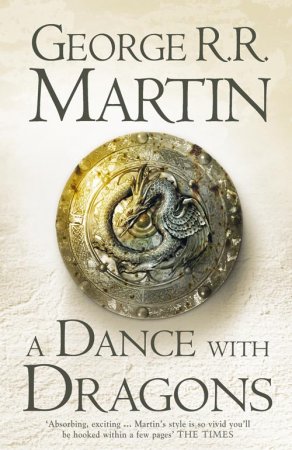 A Dance with Dragons
A Dance with Dragons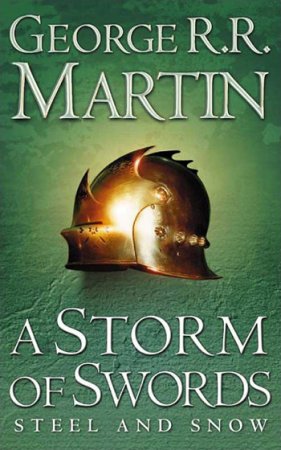 A Storm of Swords
A Storm of Swords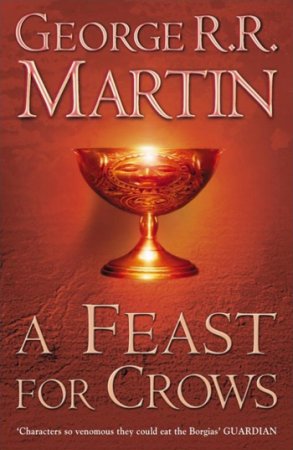 A Feast for Crows
A Feast for Crows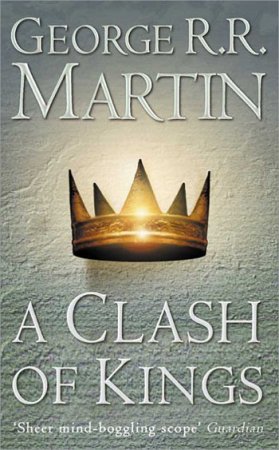 A Clash of Kings
A Clash of Kings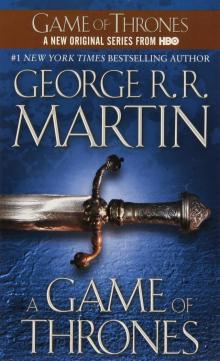 A Game of Thrones
A Game of Thrones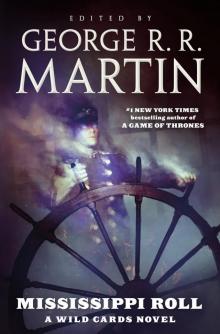 Mississippi Roll
Mississippi Roll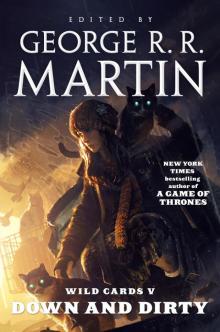 Wild Cards V: Down and Dirty
Wild Cards V: Down and Dirty Busted Flush
Busted Flush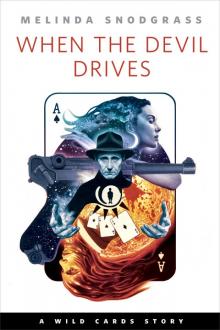 When the Devil Drives
When the Devil Drives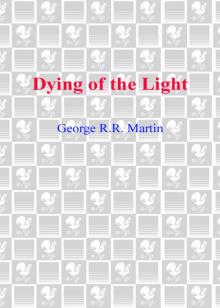 Dying of the Light
Dying of the Light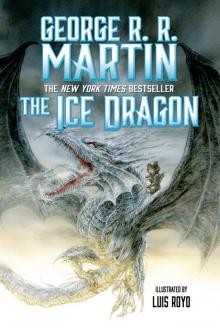 The Ice Dragon
The Ice Dragon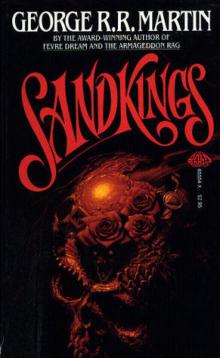 Sandkings
Sandkings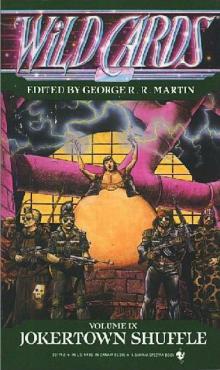 Jokertown Shuffle
Jokertown Shuffle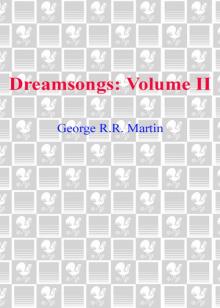 Dreamsongs. Volume II
Dreamsongs. Volume II Deuces Down
Deuces Down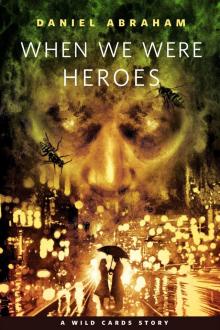 When We Were Heroes
When We Were Heroes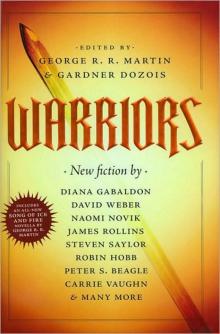 Warriors
Warriors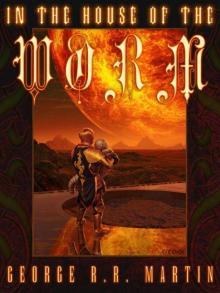 In the House of the Worm
In the House of the Worm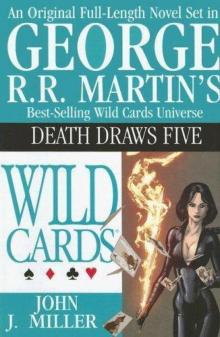 Death Draws Five
Death Draws Five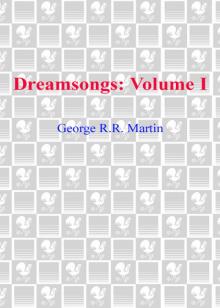 Dreamsongs. Volume I
Dreamsongs. Volume I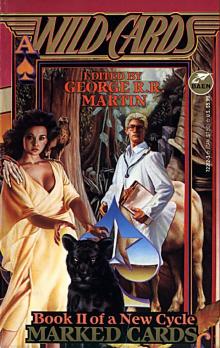 Marked Cards
Marked Cards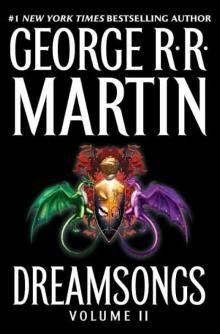 Dreamsongs
Dreamsongs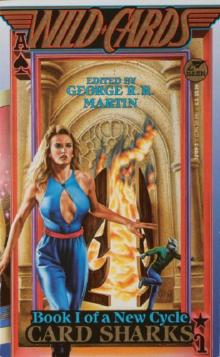 Card Sharks
Card Sharks Dangerous Women
Dangerous Women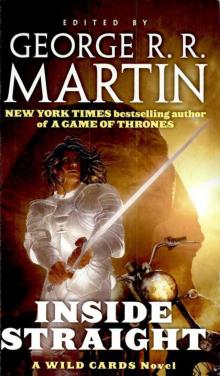 Inside Straight
Inside Straight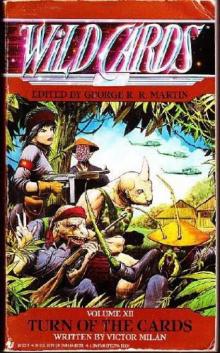 Turn of the Cards
Turn of the Cards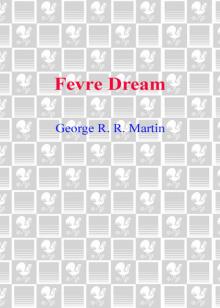 Fevre Dream
Fevre Dream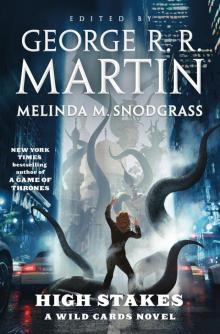 High Stakes: A Wild Cards Novel
High Stakes: A Wild Cards Novel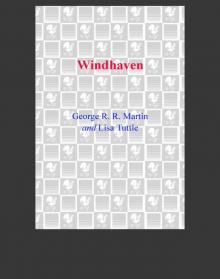 Windhaven
Windhaven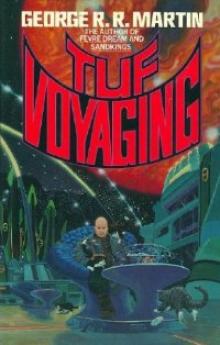 Tuf Voyaging
Tuf Voyaging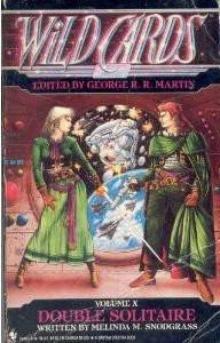 Double Solitaire
Double Solitaire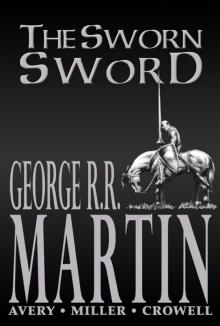 The Sworn Sword
The Sworn Sword Low Chicago
Low Chicago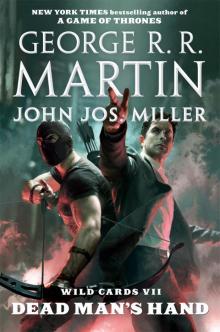 Dead Man's Hand
Dead Man's Hand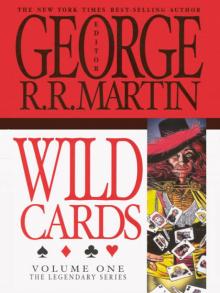 Wild Cards
Wild Cards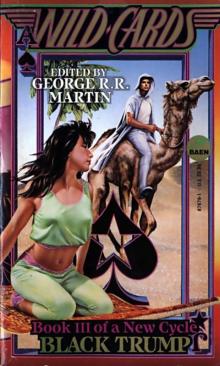 Black Trump
Black Trump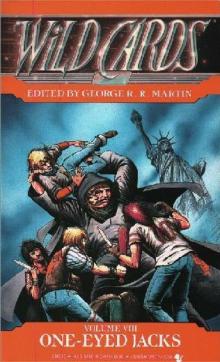 One Eyed Jacks
One Eyed Jacks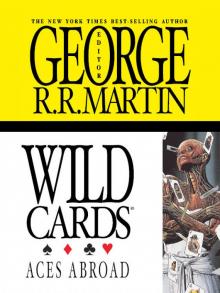 Wild Cards: Aces Abroad
Wild Cards: Aces Abroad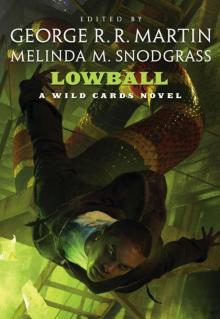 Lowball: A Wild Cards Novel
Lowball: A Wild Cards Novel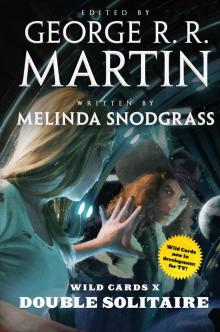 Double Solitaire (2019 Edition)
Double Solitaire (2019 Edition)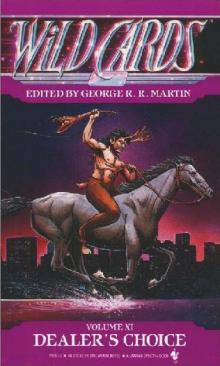 Dealer's Choice
Dealer's Choice Ace in the Hole
Ace in the Hole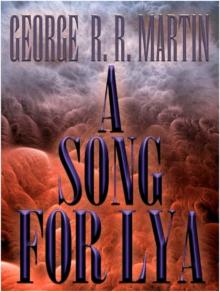 A Song for Lya: And Other Stories
A Song for Lya: And Other Stories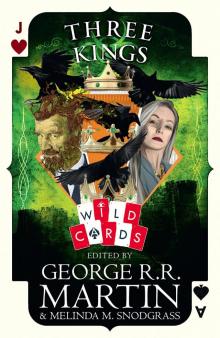 Three Kings
Three Kings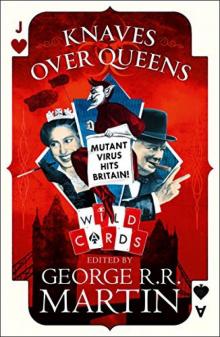 Knaves Over Queens
Knaves Over Queens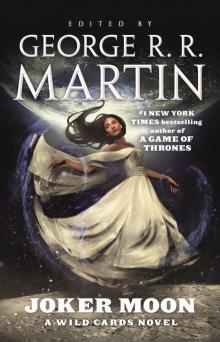 Joker Moon
Joker Moon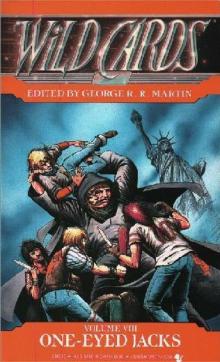 One Eyed Jacks wc-8
One Eyed Jacks wc-8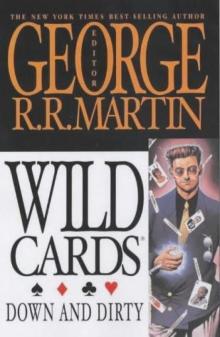 Down And Dirty wc-5
Down And Dirty wc-5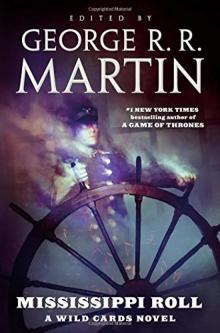 Mississippi Roll_A Wild Cards Novel
Mississippi Roll_A Wild Cards Novel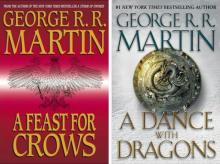 A Feast for Dragons
A Feast for Dragons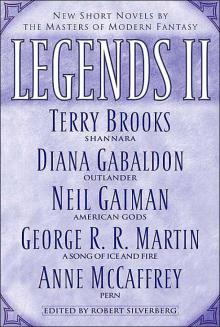 The Sworn Sword ttodae-2
The Sworn Sword ttodae-2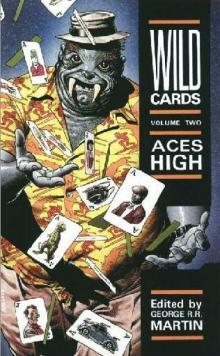 Aces High wc-2
Aces High wc-2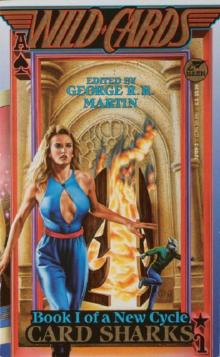 Wild Cards 13 : Card Sharks
Wild Cards 13 : Card Sharks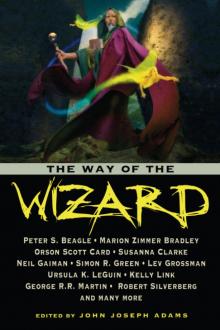 Way of the Wizard
Way of the Wizard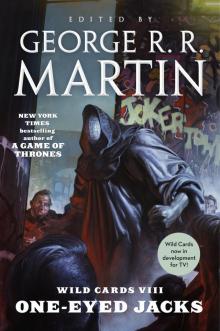 Wild Cards VIII: One-Eyed Jacks
Wild Cards VIII: One-Eyed Jacks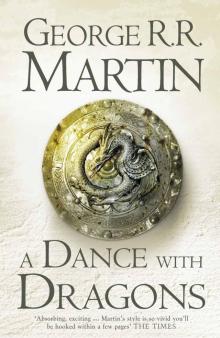 A Dance With Dragons: Book 5 of A Song of Ice and Fire (Song of Ice & Fire 5)
A Dance With Dragons: Book 5 of A Song of Ice and Fire (Song of Ice & Fire 5)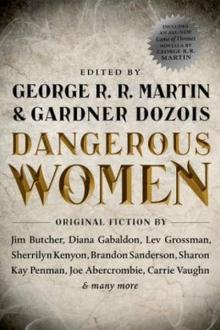 The Princess and The Queen, Or, The Blacks and The Greens (a song of ice and fire)
The Princess and The Queen, Or, The Blacks and The Greens (a song of ice and fire)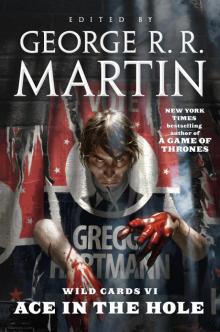 Wild Cards VI--Ace in the Hole
Wild Cards VI--Ace in the Hole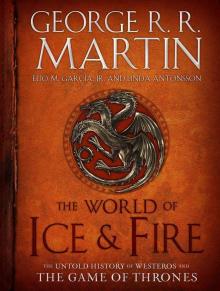 The World of Ice & Fire: The Untold History of Westeros and the Game of Thrones (A Song of Ice and Fire)
The World of Ice & Fire: The Untold History of Westeros and the Game of Thrones (A Song of Ice and Fire)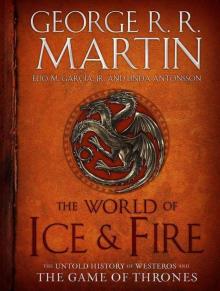 The World of Ice & Fire: The Untold History of Westeros and the Game of Thrones
The World of Ice & Fire: The Untold History of Westeros and the Game of Thrones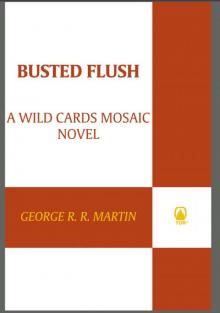 Busted Flush wc-19
Busted Flush wc-19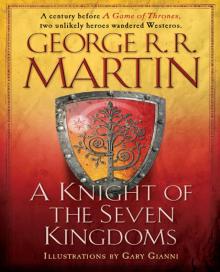 A Knight of the Seven Kingdoms
A Knight of the Seven Kingdoms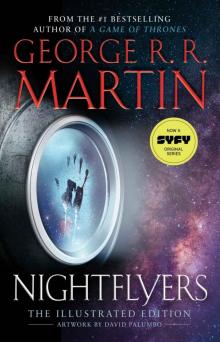 Nightflyers: The Illustrated Edition
Nightflyers: The Illustrated Edition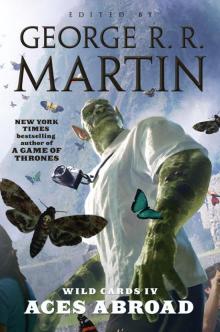 Wild Cards IV
Wild Cards IV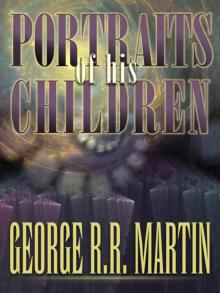 Portraits of His Children
Portraits of His Children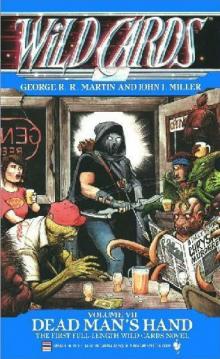 Dead Mans Hand wc-7
Dead Mans Hand wc-7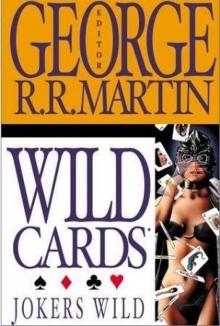 Jokers Wild wc-3
Jokers Wild wc-3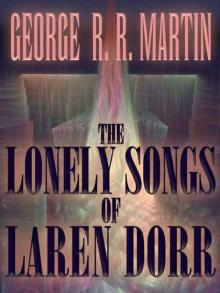 The Lonely Songs of Laren Dorr
The Lonely Songs of Laren Dorr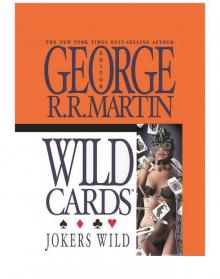 Wild Cards III: Jokers Wild
Wild Cards III: Jokers Wild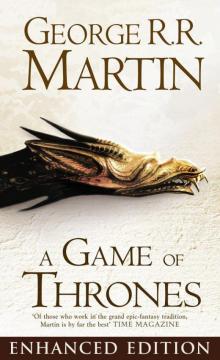 A Game of Thrones Enhanced Edition
A Game of Thrones Enhanced Edition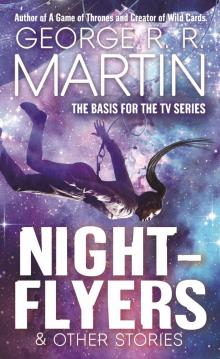 Nightflyers & Other Stories
Nightflyers & Other Stories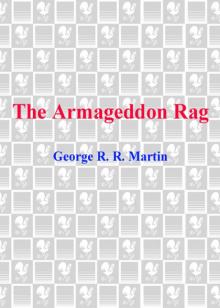 Armageddon Rag
Armageddon Rag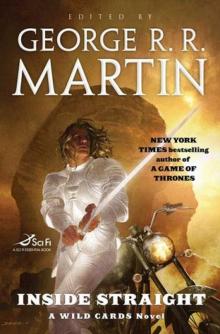 Wild Cards: Inside Straight
Wild Cards: Inside Straight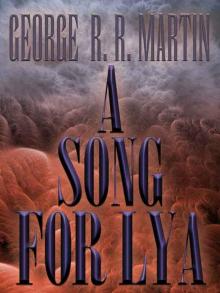 A Song for Lya
A Song for Lya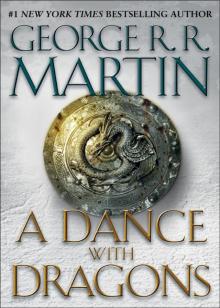 A Dance with Dragons: A Song of Ice and Fire: Book Five
A Dance with Dragons: A Song of Ice and Fire: Book Five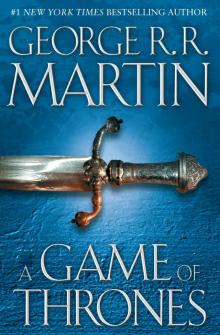 Song of Fire & Ice 01 - A Game of Thrones
Song of Fire & Ice 01 - A Game of Thrones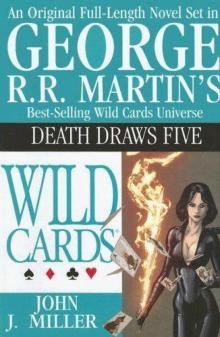 Death Draws Five wc-17
Death Draws Five wc-17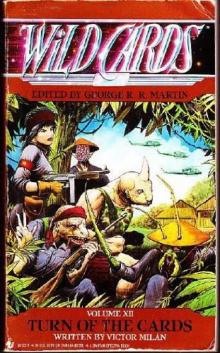 Turn of the Cards w-12
Turn of the Cards w-12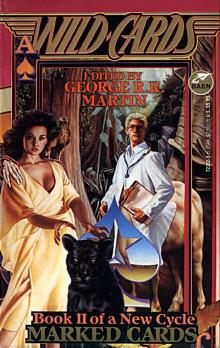 Wild Cards 14 - Marked Cards
Wild Cards 14 - Marked Cards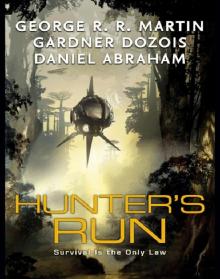 Hunter's Run
Hunter's Run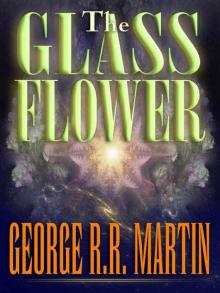 The Glass Flower
The Glass Flower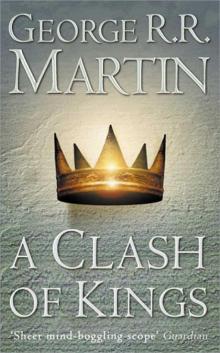 A Clash of Kings asoiaf-2
A Clash of Kings asoiaf-2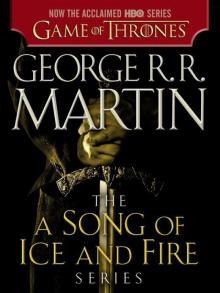 A Game of Thrones 5-Book Bundle: A Song of Ice and Fire Series: A Game of Thrones, A Clash of Kings, A Storm of Swords, A Feast for Crows, and A Dance with Dragons (Song of Ice & Fire)
A Game of Thrones 5-Book Bundle: A Song of Ice and Fire Series: A Game of Thrones, A Clash of Kings, A Storm of Swords, A Feast for Crows, and A Dance with Dragons (Song of Ice & Fire)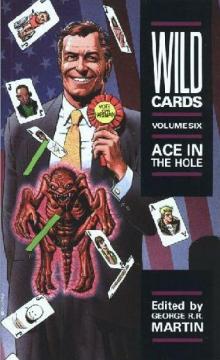 Ace In The Hole wc-6
Ace In The Hole wc-6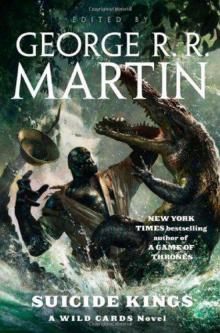 Suicide Kings wc-20
Suicide Kings wc-20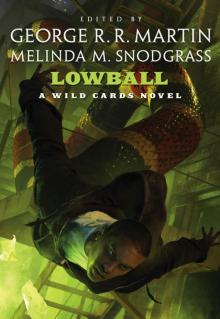 Lowball
Lowball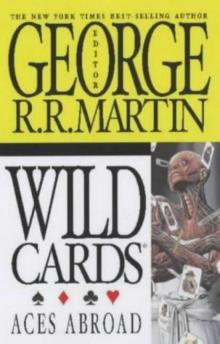 Aces Abroad wc-4
Aces Abroad wc-4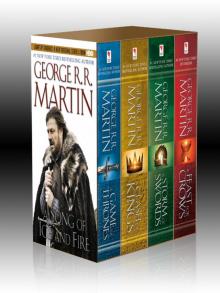 George R. R. Martin's a Game of Thrones 4-Book Bundle
George R. R. Martin's a Game of Thrones 4-Book Bundle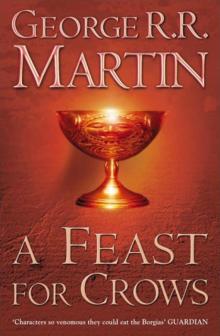 A Feast for Crows asoiaf-4
A Feast for Crows asoiaf-4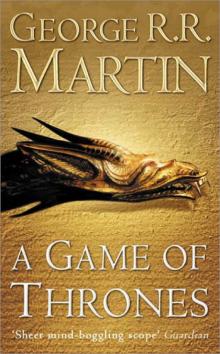 A Game of Thrones asoiaf-1
A Game of Thrones asoiaf-1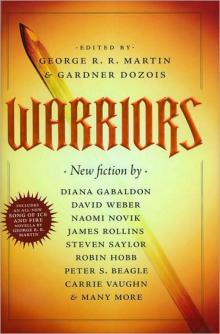 The Mystery Knight ttodae-3
The Mystery Knight ttodae-3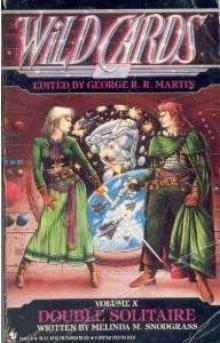 Double Solitaire w-10
Double Solitaire w-10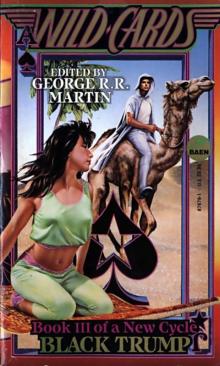 Wild Cards 15 - Black Trump
Wild Cards 15 - Black Trump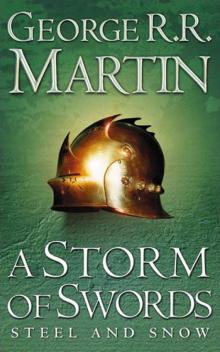 A Storm of Swords asoiaf-3
A Storm of Swords asoiaf-3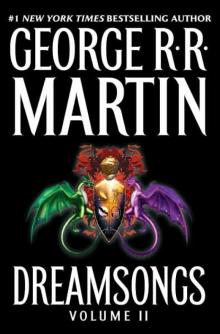 The Hedge Knight ttodae-1
The Hedge Knight ttodae-1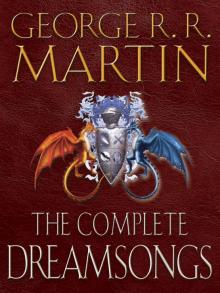 Dreamsongs 2-Book Bundle
Dreamsongs 2-Book Bundle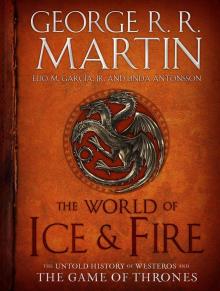 The World of Ice & Fire
The World of Ice & Fire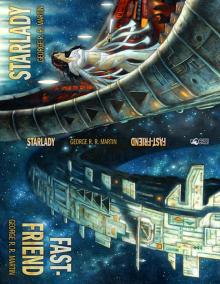 Starlady & Fast-Friend
Starlady & Fast-Friend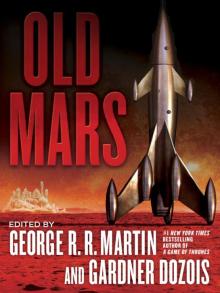 Old Mars
Old Mars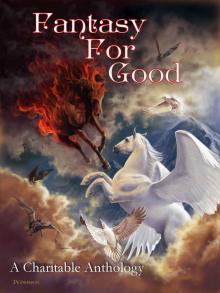 Fantasy For Good: A Charitable Anthology
Fantasy For Good: A Charitable Anthology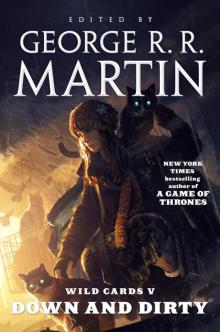 Wild Cards V
Wild Cards V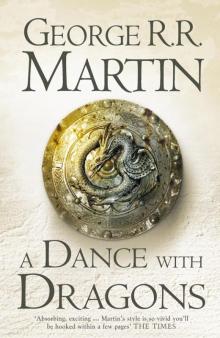 A Dance with Dragons asoiaf-5
A Dance with Dragons asoiaf-5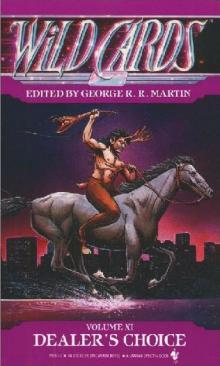 Dealer's Choice w-11
Dealer's Choice w-11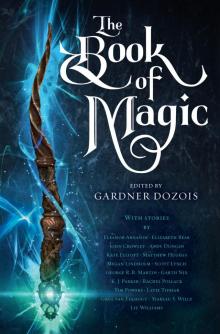 The Book of Magic
The Book of Magic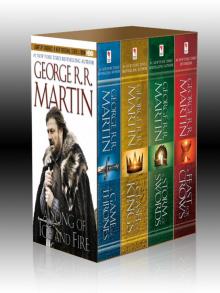 A Game of Thrones 4-Book Bundle
A Game of Thrones 4-Book Bundle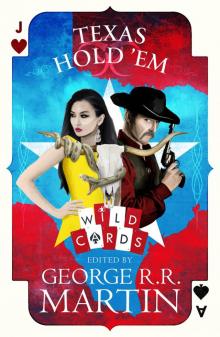 Texas Hold 'Em
Texas Hold 'Em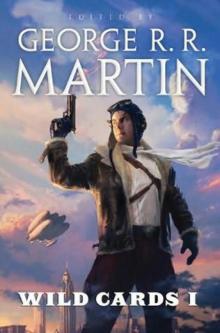 Wildcards wc-1
Wildcards wc-1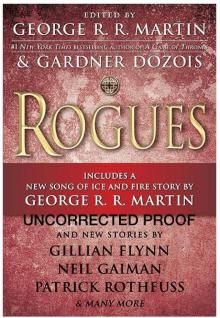 Rogues
Rogues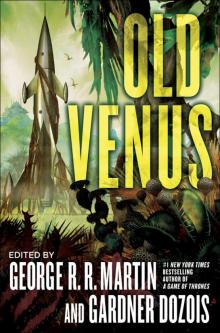 Old Venus
Old Venus